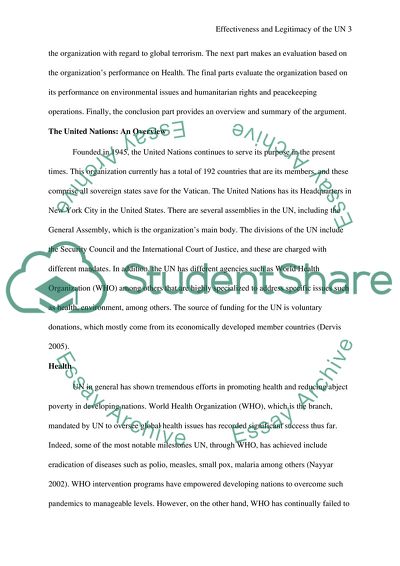Cite this document
(Effectiveness and Legitimacy of the UN Coursework Example | Topics and Well Written Essays - 2750 words, n.d.)
Effectiveness and Legitimacy of the UN Coursework Example | Topics and Well Written Essays - 2750 words. https://studentshare.org/politics/1867026-critically-evaluate-the-effectiveness-and-legitimacy-of-one-international-organisation-eg-the-un
Effectiveness and Legitimacy of the UN Coursework Example | Topics and Well Written Essays - 2750 words. https://studentshare.org/politics/1867026-critically-evaluate-the-effectiveness-and-legitimacy-of-one-international-organisation-eg-the-un
(Effectiveness and Legitimacy of the UN Coursework Example | Topics and Well Written Essays - 2750 Words)
Effectiveness and Legitimacy of the UN Coursework Example | Topics and Well Written Essays - 2750 Words. https://studentshare.org/politics/1867026-critically-evaluate-the-effectiveness-and-legitimacy-of-one-international-organisation-eg-the-un.
Effectiveness and Legitimacy of the UN Coursework Example | Topics and Well Written Essays - 2750 Words. https://studentshare.org/politics/1867026-critically-evaluate-the-effectiveness-and-legitimacy-of-one-international-organisation-eg-the-un.
“Effectiveness and Legitimacy of the UN Coursework Example | Topics and Well Written Essays - 2750 Words”. https://studentshare.org/politics/1867026-critically-evaluate-the-effectiveness-and-legitimacy-of-one-international-organisation-eg-the-un.


